
Kód: 08243050
Relationships Between Political Development and Intervention
Autor David T London
The Democratic Republic of the Congo (the Congo) received its independence from Belgium on 30 June 1960. The Congo's political development from the 1700s to 1960 resulted in a democratically elected Congolese administration that a ... celý popis
- Jazyk:
 Angličtina
Angličtina - Väzba: Brožovaná
- Počet strán: 54
Nakladateľ: Biblioscholar, 2012
- Viac informácií o knihe

Mohlo by sa vám tiež páčiť
-

Velocity Plume Profiles for Hall Thrusters Using Laser Diagnostics
68.88 € -

Free to Dream
19.78 € -
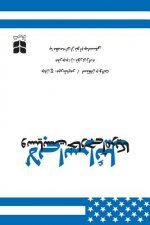
Israel Lobby and U. S. Foreign Policy
28.50 € -7 % -

Seven Things That God Hates & Seven Letters to Seven Churches
25.96 € -
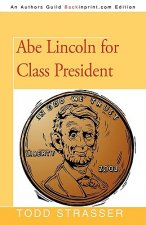
Abe Lincoln for Class President
11.66 € -4 % -

Long Road Home...
29.31 € -
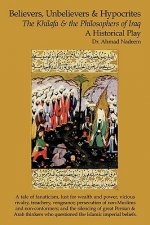
Believers, Unbelievers, and Hypocrites
25.96 € -

Ballads and Other Poems
16.73 € -

My Life is an Open Book
20.49 € -

Nassau Incident
33.78 € -

Voyage de Humboldt Et Bonpland. Personal Narrative of Travels to the Equinoctial Regions of the New Continent During the Years 1799-1824 Translated In
44.33 € -

Ode for an Entertainment of Musick on Her Majesty's Birth-Day, and the Success of Her Majesty's Arms by Sea and Land. the Night Performance Before Her
16.22 € -4 % -

Bolt and Win
33.17 € -4 % -
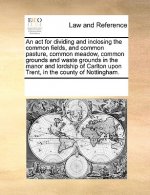
ACT for Dividing and Inclosing the Common Fields, and Common Pasture, Common Meadow, Common Grounds and Waste Grounds in the Manor and Lordship of Car
18.76 €
Darčekový poukaz: Radosť zaručená
- Darujte poukaz v ľubovoľnej hodnote, a my sa postaráme o zvyšok.
- Poukaz sa vzťahuje na všetky produkty v našej ponuke.
- Elektronický poukaz si vytlačíte z e-mailu a môžete ho ihneď darovať.
- Platnosť poukazu je 12 mesiacov od dátumu vystavenia.
Viac informácií o knihe Relationships Between Political Development and Intervention
Nákupom získate 172 bodov
 Anotácia knihy
Anotácia knihy
The Democratic Republic of the Congo (the Congo) received its independence from Belgium on 30 June 1960. The Congo's political development from the 1700s to 1960 resulted in a democratically elected Congolese administration that at the time of independence was unable to operate the national government or the economy. As a result, the Congo became a failing state within days of gaining independence. Beginning with King Leopold II's reign over the Congo in 1885 and continuing under the administrations of President Joseph Mobutu, President Laurent Kabila, and President Joseph Kabila, successive Congolese administrations employed four governing practices that undermined the country's stability. Congolese administrations relied upon foreign political support to retain power. They used private international companies to fulfill many security and economic functions. They manipulated ethnic differences within their populations to maintain control, and they used the state's resources to increase their own personal wealth and power at the expense of the Congo's larger social well being. These governing practices have both helped and thwarted international interventions into the Congo since 1960. Between 1960 and 2005, the United Nations, the international community, and various African states launched interventions into the Congo. The intervening entities used a combination of military, political, and economic means to stabilize the Congo. The interventions varied in their use of opportunities made available by the Congo's state of political development. Examples of such opportunities included the widespread public support for democratic rule, the presence of a democratically elected administration, and the Congo's dependence on foreign aid. Most of the interventions ignored existing opportunities to improve the stability of the Congo's government and instead pursued the national interests of the intervening entities, often to the detriment of the larger Congolese population
 Parametre knihy
Parametre knihy
Zaradenie knihy Knihy po anglicky Society & social sciences Education
68.88 €
- Celý názov: Relationships Between Political Development and Intervention
- Autor: David T London
- Jazyk:
 Angličtina
Angličtina - Väzba: Brožovaná
- Počet strán: 54
- EAN: 9781288313150
- ISBN: 9781288313150
- ID: 08243050
- Nakladateľ: Biblioscholar
- Hmotnosť: 113 g
- Rozmery: 246 × 189 × 3 mm
- Dátum vydania: 19. November 2012
Obľúbené z iného súdka
-
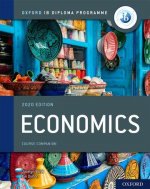
Oxford IB Diploma Programme: IB Economics Course Book
62.29 € -

OET Preparation
10.34 € -

Cambridge IGCSE (R) & O Level Complete Physics: Student Book Fourth Edition
38.65 € -

Business Partner B2 Workbook
16.73 € -4 % -

Business Partner B1 Workbook
17.44 € -9 % -

Imagine If...
10.95 € -23 % -

OET Reading Subtest Preparation
12.67 € -7 % -

Vol 2 Blackletter Lettering Adventures
26.78 € -

AS & A Level Maths For Dummies
19.47 € -18 % -

CompTIA Security+ Review Guide - Exam SY0-601
26.17 € -20 % -

Hanbo Jutsu: Use of Hanbo, Cane and Walking Stick for Self Defense
11.56 € -

Amazing Autistic Brain Cards
41.69 € -

Embodied Teen
21.91 € -16 % -

Blue Book of Grammar and Punctuation: An Easy- to-Use Guide with Clear Rules, Real-World Examples , and Reproducible Quizzes, Twelfth Edition
16.83 € -20 % -

Positive Discipline Tools for Teachers
18.35 € -3 % -

Oxford IB Diploma Programme: IB Theory of Knowledge Course Book
57.93 € -
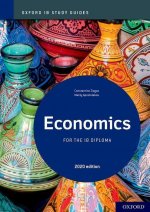
Oxford IB Study Guides: Economics for the IB Diploma
47.07 € -

Speed and Accuracy: Division
8.61 € -

GCSE Spanish Exam Practice Workbook (includes Answers & Free Online Audio)
7.90 € -10 % -

KS3 Maths 10-Minute Weekly Workouts - Year 7
8.01 € -9 % -

Vertical Academy
36.92 € -

Grade 9-1 GCSE Maths AQA Revision Question Cards - Higher
10.64 € -

Human Landscapes from My Country
27.69 € -4 % -

Cambridge IGCSE (R) & O Level Complete Chemistry: Student Book Fourth Edition
43.01 € -

Oxford IB Diploma Programme: IB Course Preparation Mathematics Student Book
41.18 € -

1000 TRIOS or gapped sentences for Cambridge Advanced and Proficiency Exams
24.85 € -

Business Partner B1+ Workbook
16.73 € -4 % -

(ISC) SSCP SG & SSCP Practice Test Kit, 3e
70 € -23 % -

Einkorn
20.89 € -20 % -

Czech Verbs
39.97 € -

Motivation and Reinforcement
46.66 € -

Pearson Edexcel International GCSE (9-1) English Language B Student Book
58.33 € -

Read Write Inc. Phonics: Red Ditty Book Bag Books (Mixed Pack of 10)
67.46 € -

Oxford International Primary Maths Second Edition: Practice Book 1
12.98 € -

Forensic Linguistics Articles
17.44 € -

Corrected Squares of The Book of Abramelin
606.54 € -

Exam Prep for Microeconomics by Pindyck & Rubinfeld, 6th Ed.
45.34 € -

KS3 Maths 10-Minute Weekly Workouts - Year 8
8.01 € -9 % -

Reading Mind - A Cognitive Approach to Understanding How the Mind Reads
23.83 € -20 % -

Ganzheitliche Sprachförderung
32.36 € -

Internet Protocol over Link-16
68.88 € -

Effect of Registration Errors on Tracking in a Networked Radar System
68.88 € -

Princeton Review SAT Premium Prep, 2021
45.75 € -

CEH v11 Certified Ethical Hacker Study Guide + Practice Tests Set
61.98 € -23 % -

10 Practice Tests for the SAT, 2021 Edition
33.88 € -
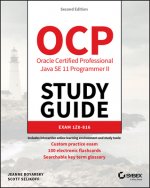
OCP Oracle Certified Professional Java SE 11 Programmer II Study Guide - Exam 1Z0-816 and Exam 1Z0-817
50.01 € -6 % -

Prepared
33.98 € -

Powerful Teaching: Unleash the Science of Learning
28.50 € -20 % -

Physics for You
57.42 €
Osobný odber Bratislava a 2642 dalších
Copyright ©2008-24 najlacnejsie-knihy.sk Všetky práva vyhradenéSúkromieCookies



 21 miliónov titulov
21 miliónov titulov Vrátenie do mesiaca
Vrátenie do mesiaca 02/210 210 99 (8-15.30h)
02/210 210 99 (8-15.30h)